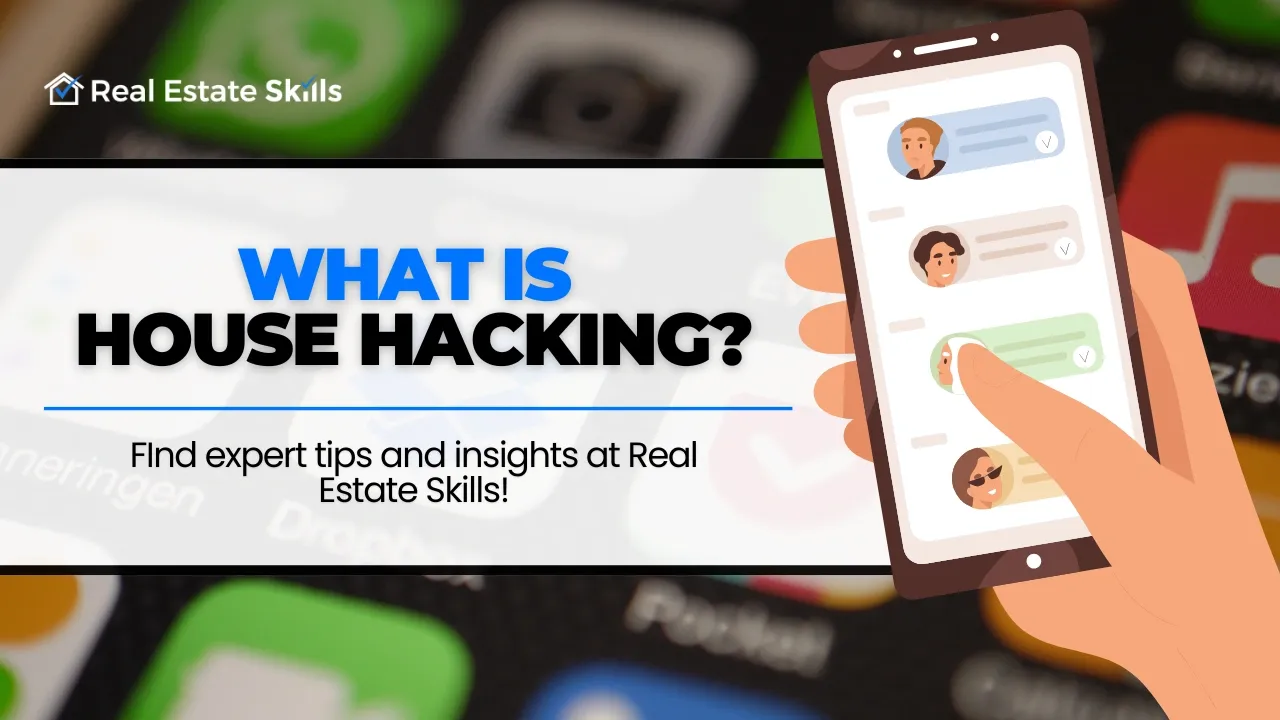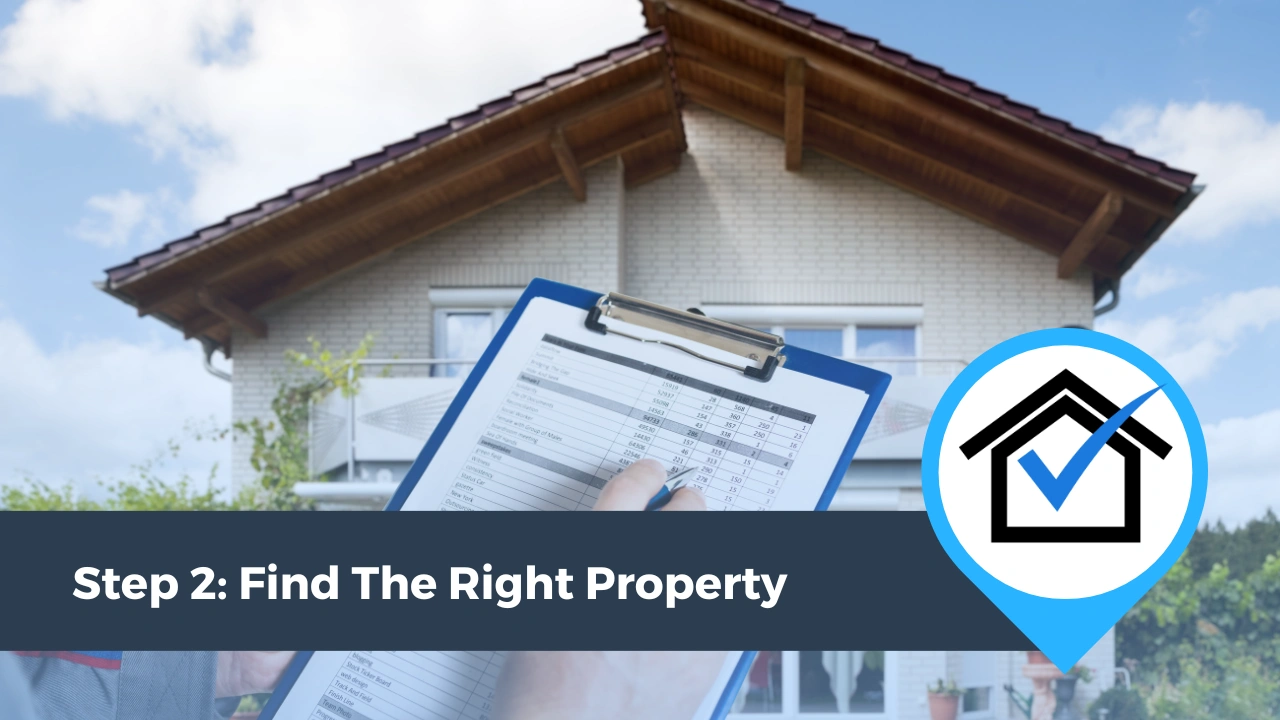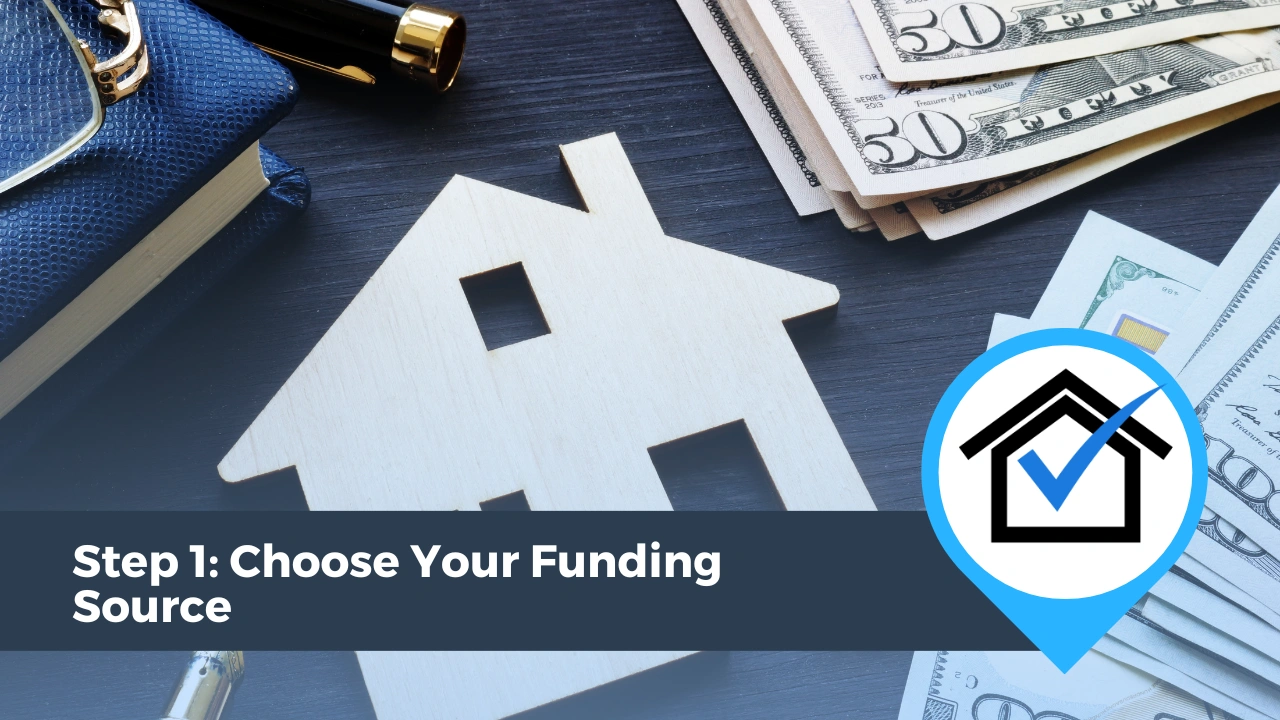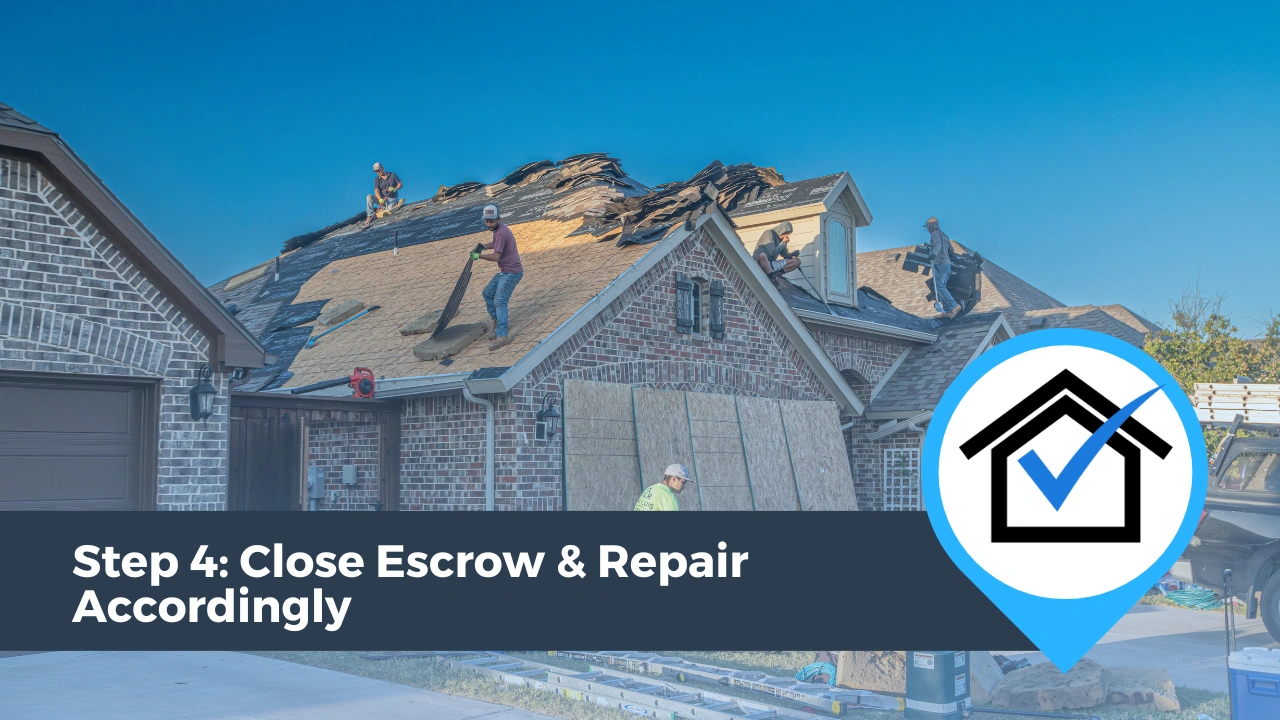What Is House Hacking? Definition, Strategies, & Expert Tips
Oct 08, 2025
In the current financial landscape, navigating the real estate market can be daunting due to rapidly rising interest rates. Any astute investor knows that before diving into an investment, it's crucial to scrutinize the cost of acquiring, financing, and upkeeping the property.
This inflationary trend has prompted governmental intervention. In a bid to curtail the rapid surge in home prices and the general cost of goods, there has been a consistent hike in interest rates. This decision has created waves in the market, making the quest to purchase and finance properties a challenging ordeal for aspiring homeowners and investors alike.
So, what's the crux of the situation? Flashback to early 2022, individuals could secure homes with loans bearing a mere 2.75% interest rate. Fast forward to August 16, 2023, and the landscape has shifted dramatically.
According to Bankrate, the average 30-year fixed mortgage interest rate stands at a staggering 7.55%, marking an 18 basis point leap from just the previous week. Those seeking to refinance aren't exempt from this uptick either; the national rate for a 30-year fixed refinance is currently at 7.71%, a 28 basis point increase from the preceding week. Even the 15-year refinance interest rate has climbed to 6.91%, reflecting a 14 basis point growth week-over-week.
These figures, while appearing modest in isolation, can translate to a significant financial burden when borrowing large sums. As rates soar, it's more essential than ever to compare today's mortgage interest rates before finalizing any loan commitment.
So, what can you do to combat such challenging market environments? House hacking.
House hacking is a tried and true technique used to navigate the rising cost of borrowing and the challenges posed to individuals in today’s market environment. In this article, we’ll go into seven different house hacking strategies you should consider in order to succeed in real estate investing.
- What Is House Hacking?
- Why Should You House Hack? The Pros & Cons
- How To House Hack Successfully In 5 Steps
- 7 Expert House Hacking Strategies
- How Much Does It Cost To Hack A House?
- House Hacking Legal?
- Is House Hacking Worth It?
- House Hacking Mistakes To Avoid
- Final Thoughts
If you’re serious about doing your first real estate deal, don’t waste time guessing what works. Our FREE Training walks you through how to consistently find deals, flip houses, and build passive income—without expensive marketing or trial and error.
This FREE Training gives you the same system our students use to start fast and scale smart. Watch it today—so you can stop wondering and start closing.
What Is House Hacking?
House hacking is a powerful real estate investment strategy wherein individuals generate rental income from their primary residence, reducing their own living expenses.
While this concept has its roots in pricier urban areas where homeowners found it challenging to manage their monthly mortgage amidst soaring living costs, its application has broadened significantly over the years.
At its core, house hacking involves purchasing a property, living within it, and renting out a portion – be it a room, unit, or even transformed spaces like garages. This provides a dual advantage: not only does the rent collected to offset the mortgage and other associated property expenses, but house hackers often access more favorable financing options typically available to homeowners, such as FHA loans.
Whether through multi-family properties, where the owner lives in one unit and leases out the others, or a single-family home with a rented-out bedroom or remodeled space, house hacking offers both novices and savvy investors a chance to dive into property management and landlord.
Plus, with the benefits of tax deductions on housing expenses, depreciation, and property value appreciation, house hacking emerges as a strategic move to bolster monthly cash flow and lay a strong foundation in real estate investment.
Read Also: How To Start A House-Flipping Business: Plan Your Success In 10 Steps
Why Should You House Hack? The Pros & Cons
As stated above, the real estate industry today has witnessed historically low inventory and record inflation. In this context, house hacking has grown in popularity among both seasoned investors and first-time homebuyers.
The concept sounds promising, especially in these times, but like any investment strategy, it has its pros and cons:
Pros of House Hacking:
-
Financial Relief: One of the main allures of house hacking is the immediate financial relief it can offer. By renting out units, homeowners can offset a significant portion, if not all, of their mortgage and related housing expenses. For instance, by simply having friends or tenants pay rent, one can essentially live for free while simultaneously building equity, as illustrated by the Brandon example.
-
Jumpstart Real Estate Investments: House hacking provides a unique entry point into the real estate investment world without the need to dive in full-time. It allows for hands-on experience, making it a solid stepping stone for those aspiring to delve deeper into property investments.
-
Attractive Financing Options: Qualifying for owner-occupancy financing means potentially lower interest rates and better terms. Moreover, the down payment requirements can be significantly less than traditional investment properties.
-
Flexibility: Life is unpredictable, and house hacking offers adaptability. Whether facing job transfers, family expansions, or unexpected life changes, the model can pivot to suit various needs, ensuring continuity of passive income.
-
Landlord Experience: Living on the property provides a crash course in landlord-tenant relationships, property management, and other nuances of real estate investing. It's a practical way to learn the ropes and prepare for larger-scale investments in the future.
-
Tax Benefits: Owners can avail of various tax deductions associated with rental properties, such as repair costs and depreciation expenses.
-
Ideal for First-Time Buyers: With potential smaller down payments and experiential learning about property management, house hacking emerges as an attractive proposition for those taking their first step into property ownership.
Cons of House Hacking:
-
Work-Life Imbalance: When your home doubles as your investment, it might blur the boundaries between personal life and work, potentially leading to stress and burnout.
-
Proximity to Tenants: Living close to or with your tenants might not be everyone's cup of tea. It can lead to potential disputes or disagreements, with the added challenge of maintaining a professional demeanor.
-
Resale Challenges: Selling a multi-unit property, especially when occupied, can be more challenging than a standard single-family home. Potential buyers might be deterred by the idea of inheriting existing tenants.
-
Increased Wear and Tear: With multiple occupants and frequent tenant turnover, the property might experience more wear and tear than a standard owner-occupied home, leading to potential higher maintenance costs.
House hacking can be an intimidating venture, especially for new investors. That's why real estate skills offer you all the education and tools you need to be successful! Join our FREE training below.
How To House Hack Successfully In 5 Steps
Before engaging in a house hacking transaction, you must go through the necessary steps to ensure you are making a sound financial decision. If you think house hacking is a strategy you want to pursue, here are the steps you can follow:
1. Choose Your Funding Source
Navigating the world of financing can be complex, especially when diving into the realm of house hacking. As a prospective owner-occupant, your status offers a unique advantage. Unlike traditional investors, you have access to various homebuyer-assistance programs and specific loans that can provide more favorable terms.
-
FHA Loan: One of the most accessible options is the Federal Housing Administration (FHA) loan. This loan is particularly attractive to first-time homeowners, allowing for multifamily properties with up to four units. With a required down payment as low as 3.5% of the purchase price, it provides an affordable entry point into the market. For instance, this would mean a mere $5,000 down payment on a $160,000 home. Furthermore, if you're keen on renovating the units before renting them, the FHA 203K loan might be ideal for you.
-
VA Loans: If you're a veteran, VA loans backed by the Department of Veterans Affairs can be a godsend. Offering the possibility of 100% financing, it's a valuable resource for those who've served.
-
Traditional Financing Routes: Conventional loans provided by traditional lenders such as banks or credit unions remain a solid option. They typically have attractive interest rates, even for those with lower credit scores. Depending on your financial health and creditworthiness, down payments can be as low as 5%.
-
Alternative Financing Methods: Some house hackers lean towards the BRRR method, an acronym for buy, rehab, rent, and refinance. This approach involves using short-term funds to refurbish and rent out your property initially, followed by securing a long-term mortgage through refinancing. It's a more hands-on approach but can be rewarding if executed correctly.
Before venturing further, it's wise to take several preparatory steps:
-
Assess your credit report.
-
Reflect on how a mortgage might change your spending habits.
-
Factor in potential changes in expenses post-purchase.
-
Calculate the down payment you can afford and the consequent price range of homes within your budget.
-
Prepare a robust loan application package, which typically includes personal and financial details, pay stubs, recent tax returns, bank statements, and identity verification.
In all these financing endeavors, the key is to choose a method that aligns best with your financial situation, long-term goals, and risk tolerance. Ensure you do thorough research and perhaps consult with a financial advisor to make informed decisions.

2. Find The Right Property
Selecting the perfect property is crucial when house hacking, not only from an investment standpoint but also considering you'll be living there. Here are a few expert tips to help you locate the right one:
-
Personal Comfort & Preferences: Since house hacking means you'll reside in the property you’re renting out, it's paramount to consider your personal preferences. Whether it's a unit in a multi-family building, a room in a shared house, or even a revamped basement, you'll be spending a significant portion of your time there. If you’re not fond of the house or its surrounding community, it's best to look elsewhere. Also, ponder on qualitative aspects like how the location fits into your social life, job prospects in the area, and your overall contentment living there.
-
Adopt A Business Owner's Mindset: The location plays a pivotal role as it affects the purchase price, potential rent, and the overall desirability of the property. Look for areas with steady population and job growth, and access to local amenities. These factors signify a robust and thriving rental market.
-
Seek Expert Guidance: Especially if you're a beginner, partnering with a real estate agent experienced in multi-unit properties can be invaluable. They can offer insights into market prices, rental rates, and the potential of various areas.
7 Features To Consider When Looking For A House Hacking Property
In your house hacking journey, remember to balance your personal preferences with investment potential. By ensuring both, you set the stage for both personal satisfaction and financial success!
Here are 7 features you should look out for when finding the right property:
-
Finished Basements: Some homes boast of basements transformed into full-fledged living spaces complete with kitchenettes, bedrooms, and bathrooms. Residing in this space while leasing the main section can significantly offset your mortgage.
-
Additional Dwelling Units (ADUs): Often referred to as in-law units or guest houses, ADUs are standalone structures on the property, equipped with essential facilities. If rental of such units is permitted, it amplifies the property's investment potential.
-
Bedroom Count: In the absence of a multifamily property, a single-family house with multiple bedrooms can still be a lucrative house hacking opportunity. The more bedrooms there are, the more rentable spaces you have.
-
Convertible Spaces: Areas in a property that can be effortlessly transformed into bedrooms—like lofts, dining rooms, or bonus rooms—add immense value. Such alterations enhance the rental potential significantly.
-
Proximity to Public Transit: While rentable space is essential, its desirability can plummet if located in an unattractive area. Properties near public transport hubs or in desirable neighborhoods are always in demand.
-
Area Restrictions: Investigate local regulations, especially if considering short-term rentals like Airbnb. Some homeowners associations (HOAs) or local laws might restrict such activities.
-
Tenant Comfort: It's not just about the number of bedrooms. Having ample, comfortable living spaces can make a huge difference in attracting and retaining tenants. This includes common areas like family rooms, living rooms, or even lofts.
3. Conduct A Deal Analysis
Before you make an offer or decide on a property, it's essential to assess the financial viability of your potential investment. This step entails a detailed analysis of the potential cash flow from the property, which will help you understand the returns on your investment.
Here's how to approach conducting a deal analysis for hacking a house:
Estimate Net Operating Income (NOI)
Begin by estimating your potential rental income and subtracting expected property expenses from it. This will give you an idea of the operational profitability of the property. Some key items to include in your calculation are:
-
Rental Income: Predicted monthly rent from tenants.
-
Property Taxes: Monthly or yearly tax amounts.
-
Insurance: Costs associated with insuring the property.
-
Maintenance & Repairs: Regular upkeep and any anticipated repair costs.
-
Utilities: If you're bearing them, include water, electricity, gas, etc.
-
Operating Expenses: Costs associated with running the property, like management fees or common area maintenance.
-
Vacancy Reserve: A contingency fund for periods when the property might be vacant.
Mortgage Calculations
After arriving at the NOI, it's time to figure out your monthly mortgage payments. Tools like online mortgage calculators can be handy for this. Input the purchase price, your down payment, interest rate, and loan term to get the monthly amount.
Determine Monthly Cash Flow
Subtract your monthly mortgage payment from the NOI. The result is your monthly cash flow.
-
Positive Cash Flow: This is the ideal scenario. A positive cash flow indicates that after accounting for all expenses, including your mortgage, you'll have a surplus. Essentially, you’re living for free and making a profit.
-
Negative Cash Flow: While not ideal, a small negative cash flow isn't necessarily a deal-breaker. It could mean you're living at a significantly reduced cost compared to renting a similar property. However, it's crucial to ensure the amount is manageable and that the long-term appreciation potential of the property justifies the temporary loss.
Estimate Future Potential
While immediate cash flow is essential, don’t forget to account for future potential. Many house hackers anticipate a day when the property's equity can be leveraged—either through refinancing or by selling—to invest further. The appreciation potential of the property and its potential as a full rental in the future are factors worth considering.
Read Also: Estimating Rehab Costs: A 5-Step Guide For Real Estate Investors
4. Close Escrow & Repair Accordingly
Closing on a property is a significant milestone in the house hacking journey. It involves understanding various expenses beyond your down payment. Typically, closing costs, which can encompass origination charges, appraisal fees, home inspections, title search and lender insurance fees, and prepaid like homeowner’s insurance and upfront interest, range between 3% to 5% of the loan amount. Once you've navigated these costs and taken title, the property is legally yours, marking the perfect time to move in and get acquainted with your new space.
Your next move depends on the property's condition and your intentions. If you’re merely renting out a room within your primary residence, the required preparations might be minimal, such as fresh paint or minor upgrades. However, more substantial projects like transforming a basement or attic into a livable space may demand structural modifications, electrical work, and plumbing adjustments. For those with multifamily units, each segment's readiness may differ. Some might be primed for tenants, while others require renovations to ensure they comply with local rental regulations and provide a safe, welcoming environment.
Whether you’re dealing with simple repairs or extensive remodeling, always prioritize budgeting and set a realistic timeline. This approach helps manage costs and ensures that if you’re keen on generating rental income, there won’t be undue delays. Proper planning and execution lay the foundation for a successful house hacking venture.
Read Also: Free ARV Calculator: After Repair Value Calculation
5. Find The Right Tenant
Choosing the right tenant is a critical decision when house hacking, particularly when you're sharing a living space. As a landlord, especially if it's your first time, it's imperative to familiarize yourself with state landlord-tenant laws and the Fair Housing Act to ensure you're in compliance and preventing any unintentional discrimination.
Establish Your Criteria
To begin, establish a clear set of criteria for your ideal tenant. This could include their income-to-rent ratio, credit score, references, background checks, smoking habits, and whether they have pets. Having a definitive list not only ensures consistency in screening potential tenants but also offers protection against discrimination claims.
Pre-screening Process
Once you've outlined your guidelines, start the pre-screening process. Engage with potential tenants early on to communicate key requirements, such as monthly rent, security deposit, and any associated application fees. If you receive numerous inquiries, a preliminary review of applicants on platforms like social media might be beneficial to spot any evident red flags.
To further gauge compatibility and create a rapport, consider setting up a short call or a virtual chat. Personal interactions often provide insights into a tenant's character and compatibility, which could influence your decision. This approach not only allows you to assess the applicant but also boosts your credibility in their eyes.
Conduct Property Viewing
For the actual property viewing, consider organizing group tours. This method showcases the property to several prospects simultaneously, which can save time and also create a competitive atmosphere. Potential tenants, feeling the urgency, might be quicker in finalizing their decisions.
Finalize The Agreement
After collecting applications, the real vetting begins. This involves confirming provided details, running credit and background checks through a third-party service, calling references, verifying their employment, and liaising with their previous landlords.
Finally, when all boxes are checked, and a prospect aligns with your criteria, you can finalize the lease agreement, setting the stage for your role as a landlord and paving the way for a harmonious tenant relationship.

7 Expert House Hacking Strategies
House hacking presents a novel avenue that has garnered significant traction among budding investors. Let us discuss 7 house hacking strategies to help you make an informed choice and maximize your property's potential:
-
Multi-Family Properties
-
Short-Term Rentals For Single-Family Homes
-
Rental Space
-
Housemates For Multiple Bedroom Houses
-
Accessory Dwelling Unit (ADU)
-
Live-In Flip
-
Houses Near Public Transportation
1. Multi-Family Properties
Multi-family properties are properties with multiple units in the building. These can include duplexes (two units), triplexes (three units), or even small four to five-unit buildings. These buildings are great investment opportunities for a house-hacking investor due to the owner’s ability to get attractive financing to purchase these properties.
Both Fannie Mae (Federal National Mortgage Association) and Freddie Mac (Federal Home Loan Mortgage Corporation) - two government-sponsored lending agencies - have very attractive loan products for 2-4 unit buildings.
Some eligible Freddie Mac loan products include:
- Fixed-rate mortgages
- Most standard ARMs
- Home Possible Mortgages
- Seller-owned Modified Mortgages
- Seller-owned Converted Mortgages
- Financed permanent buydown mortgages
- HUD Section 184 Native American mortgages
- Super conforming mortgages
Some eligible Fannie Mae loan products include:
- HomeReady Mortgage
- 3% Down Payment Mortgage for First-time Homebuyers
- HFA Preferred
- HomeStyle Energy
- HomeStyle Renovation
- MH Advantage for Manufactured Homes
- Shared Equity Programs
These products treat small multi-family properties as residential homes if the buyer lives in the property. And, unlike other investments, a house hacker doesn’t have to pay a superintendent, porter, or property manager to help manage these day-to-day operations of the property. Since the owner lives close by, he or she can do all those daily tasks themselves - saving a tremendous amount of money along the way.
2. Short-Term Rentals For Single-Family Homes
Short-term rentals such as Airbnb or VRBO rentals are also another great property type to house hack.
These types of properties are unique in that although they are slightly riskier than standard single-family and multi-family rentals, they compensate for the risk by generating a lot of free cash flow. A house hacker can take advantage of this opportunity by purchasing a single-family home utilizing attractive financing options and renting out the house to vacationers during peak, seasonal opportunities.
For instance, Joshua Tree is an extremely popular vacation spot for people looking to hike and experience the beautiful west coast scenery. A house hacker can utilize an FHA loan and purchase a home in Joshua Tree, move to the West Coast to make that house their primary residence, and then leave the house during peak vacation season to turn it into a short-term rental.
It’s possible - given the sheer demand in the area - to make so much excess cash during those popular months that even if the house is only utilized as a short-term rental for 2 to 3 months out of the year, the house hacker will make enough money to compensate for the properties full year expenses. An investor can also reside in the house all year round and simply rent out a room or a basement as an Airbnb unit.
Short-term rentals can be challenging. However, as a house hacker with access to cheaper financing and a greater understanding of the local market, you can reduce a lot of the typical challenges short-term rental owners experience.
3. Rental Space
Another house hacking strategy could be renting out a subsection of your home as excess rental space. Today, people are always looking for additional storage. Whether it be to store their extra furniture, bicycles, or wedding gifts, the demand has grown tremendously over the years.
A young couple with a small space might not have the room to store all their gifts. Or, someone living in the city in a small one-bedroom apartment might want to pay for extra storage for another year or two until they manage to buy a house in the suburbs. These are all great options for tenants to rent space from you.
By buying a house and renovating the den, loft, attic, or garage to accommodate a clean and safe environment for storage, you could boost your income and make your yearly property expenses far more manageable.
4. Housemates For Multiple Bedroom Houses
One great strategy for young, aspiring investors, is to buy a house with multiple rooms and rent out the space in a co-living arrangement with friends or like-minded roommates. This strategy works very well for young professionals, college students, or investors with children in college.
For example, if you are a father or mother of a handful of children that are ready for college and have expressed interest in going to the same college, you could purchase a property, have your children live in the space, and have them rent out the surrounding rooms to their college friends. Or, as a young investor with some excess capital, you could purchase a home and share the space with some like-minded friends or roommates.
Areas such as Dallas, Texas, Jersey City, New Jersey, and Seattle, Washington are great markets for this strategy. Each of these places has a thriving young professional community with a wide range of tenants that would be willing to partake in a co-living environment.
5. Accessory Dwelling Unit (ADU)
An Accessory Dwelling Unit (ADU) is an attached or detached residential dwelling unit that provides complete independent living facilities for one or more persons. These types of units are a great strategy for house hacking. An investor can purchase a residential home and turn the detached garage into a separate dwelling area with its own kitchen, living area, and bathroom.
This type of strategy is very common in beach towns such as the Jersey Shore, New Jersey, Miami, Florida, Myrtle Beach, South Carolina, or along the west coast in California. Since most vacation communities are in high demand, many owners elect to build out an entirely separate living area to rent out. These house hackers are able to live in their homes during the summer months and rent these ADUs at a hefty premium to vacationers looking for an escape. The rents can sometimes be so lucrative that all the house’s annual expenses can be paid for with just a few months of summer rent.
There are roughly 1,500,000 ADUs in the United States and that number is growing by nearly 10% a year. As a potential house hacker, it might be worth tapping into this lucrative trend.
6. Live-In Flip
A live-in flip is another great house-hacking strategy to add to your repertoire.
Flipping houses is the act of purchasing a distressed property from a motivated seller or foreclosure auction either in an on or off-market transaction.
Then, once the property is purchased, the investor puts in high ROI (return on investment) renovations to increase the property’s ARV (after repair value). Next, the owner relists the property on the MLS (multiple listing service) in hopes of earning a profit on the sale.
A live-in flip is similar to a traditional flip except for a live-in flip actually resides in the house during the construction and re-stabilization of the property. There are a handful of benefits to a live-in flip transaction.
First, the owner can get attractive financing for the purchase of the property. As mentioned earlier, residential property owners get access to better interest rates and higher leverage than investment owners. By living inside the house you are flipping, you get access to these financing perks. Second, a live-in flip can flip the house slowly, over time. Since they are living in the house, they don’t need to rush the construction and bring the property back onto the market as fast as possible.
Generally, flippers want to relist the property as quickly as they can to minimize holding costs and property expenses. However, with a live-in flip, you are residing in the property and are treating it as your own home - giving yourself some leeway on timing.
7. Houses Near Public Transportation
Hacking a house near public transportation is another great strategy to consider. A lot of people tend to reside near public transportation for ease of transfer to work and social gatherings.
Purchasing and living in a home near a major train station, bus stop, or freeway can be a great investment strategy. Occupancy rates are typically higher as well because these areas tend to be in high demand due to the nearby social events, restaurants, city entry points, and amenities.
Read Also: The BRRRR Method: Formula, Strategy, & Examples In Real Estate
How Much Does It Cost To Hack A House?
There is no perfect assessment of the cost to hack a house because each particular strategy will have different financial requirements. For example, a live-in flip could cost you anywhere between $5,000 to $100,000 depending on the scope of work you’ll be doing. Are you replacing the cabinets and relisting the home or are you doing a complete rehab of each of the rooms in the house? Depending on the strategy, you’ll need to budget differently.
A short-term rental hacking strategy, on the other hand, will have a larger amount of cleaning fees as you turn over each tenant. Since you live in the house, you could likely do all the work yourself for free, or, since the work might be a bit tedious, you might want to outsource the management to a different company. Regardless, these expenses can add up and likely differ on a case-by-case basis.
In general, though, you’ll always need enough cash for a down payment on the house. Depending on the loan program, that amount can vary from 3% to 25% of the purchase price.
While it's clear that the costs associated with house hacking can vary considerably based on your chosen strategy, it's equally essential to consider alternative methods to enter the real estate market that might not require substantial capital upfront. Wondering how you might venture into real estate without draining your savings?
Watch our video on How To Get Into Real Estate With No Money! We delve into creative financing techniques and smart strategies that can help you kickstart your real estate journey even if your funds are limited. Dive into this valuable resource and set yourself on a path to real estate success!
Is House Hacking Legal?
Yes, house hacking is legal. Though, it is very important to stay up to date on any short-term rental state laws and ADU legislature. On the federal level, there are no specific laws geared toward house hacking, however, on the state level, you’ll have to abide by zoning restrictions and allowances that might appear on a case-by-case basis.
For example, not every house can be switched from a single-family residence into a multi-family dwelling. Before you jump into that particular strategy and rent out a detached garage or basement unit, check in with a local general contractor or attorney - they’ll know the state-specific laws.
Is House Hacking Worth It?
Absolutely - house hacking is worth it. But, it is not without its challenges. As a house hacker, you have to be prepared to have a tenant live very close to - if not in - your house.
You’ll quite literally be bringing your work home with you every night so be sure you and your family are both mentally and physically prepared for that responsibility.
Further, if you own your primary residence for over two years, then sell it for a profit, you may have tremendous tax benefits. If you file your taxes as an individual, you may realize up to $250,000 in capital gains without paying a dollar in federal income taxes on it! If you file as a married couple, then you may receive the first $500,000 in profit without paying any taxes on it.
This is arguably the biggest tip we can provide you - this is called the IRS Section 121 exclusion. When your home appreciates in value, due to the rising market or from forced appreciation, you may pocket a huge amount of income tax-free when you sell.
House Hacking Mistakes To Avoid
It's important for beginner and veteran investors alike to understand house hacking challenges. Gaining insights from experienced investors can help steer you away from potential mishaps.
Below are some crucial mistakes to sidestep as you embark on your house hacking journey:
-
Choosing an Unappealing Neighborhood or Property: Your property's location is paramount. A low-cost property in a less desirable area might remain vacant or attract less reliable tenants. Always select a location where you'd comfortably reside, as this is likely to appeal to other potential renters.
-
Neglecting Tenant Screening: A diligent screening process can help ensure you're sharing your space with reliable and respectful tenants. Bypassing this step might leave you with tardy rent payments or unnecessary drama.
-
Overlooking Local Regulations: Before making any structural changes or opting for short-term rentals like Airbnb, familiarize yourself with local zoning, ordinances, and county rules. Ignorance can lead to legal repercussions and hinder your property's value.
-
Failure to Budget for Repairs: Unanticipated repairs can dent your finances. It's prudent to create a separate fund dedicated to repairs, renovations, and emergencies. Consistently setting aside a fraction of your rental income can buffer you against unexpected financial shocks.
-
Neglecting Landlord Responsibilities: Living close to your tenants might foster friendships, but it's essential to remember your primary role. Timely rent collection, prompt response to maintenance requests, and adherence to landlord duties protect both your relationship and investment.
-
Not Establishing Clear Boundaries: Sharing space demands clear and enforceable boundaries. Whether it's specifying guest policies or ensuring tenants don't disturb you at odd hours, communication is key. Clearly outline expectations to ensure a harmonious living situation.
-
Mistaking Friendship for Professionalism: It's perfectly fine to develop a cordial relationship with your tenants. However, always prioritize your duties as a landlord. Be firm yet fair in rent collection, maintenance, and other responsibilities.
By being cognizant of these potential pitfalls, you can set the stage for a successful house hacking experience. It's about striking a balance between being a good neighbor and an astute investor.
Final Thoughts
House hacking is a phenomenal real estate investing strategy every investor should know about. It is the process of turning a personal residence into an investment or rental property to generate passive income. In doing so, you’ll use the property’s rental income to subsidize your standard housing expenses like insurance, property taxes, electricity, and mortgage interest. It is also a great strategy because although you’ll be renting out a portion of your home, many lenders consider it to be a primary single-family residence - even if it is a multi-unit property. Thus, when purchasing the home, you’ll get access to more favorable loans with lower credit scores and down payment requirements. For qualified veterans, some VA loans even allow for 100% financing!
After a time, as a house hacker, you’ll build financial independence and substantial wealth. Down the road, if you’ve increased the property value you can even refinance and get some additional cash out of the property to deploy into more investments.
If you’re serious about doing your first real estate deal, don’t waste time guessing what works. Our FREE Training walks you through how to consistently find deals, flip houses, and build passive income—without expensive marketing or trial and error.
This FREE Training gives you the same system our students use to start fast and scale smart. Watch it today—so you can stop wondering and start closing.
*Disclosure: Real Estate Skills is not a law firm, and the information contained here does not constitute legal advice. You should consult with an attorney before making any legal conclusions. The information presented here is educational in nature. All investments involve risks, and the past performance of an investment, industry, sector, and/or market does not guarantee future returns or results. Investors are responsible for any investment decision they make. Such decisions should be based on an evaluation of their financial situation, investment objectives, risk tolerance, and liquidity needs.










